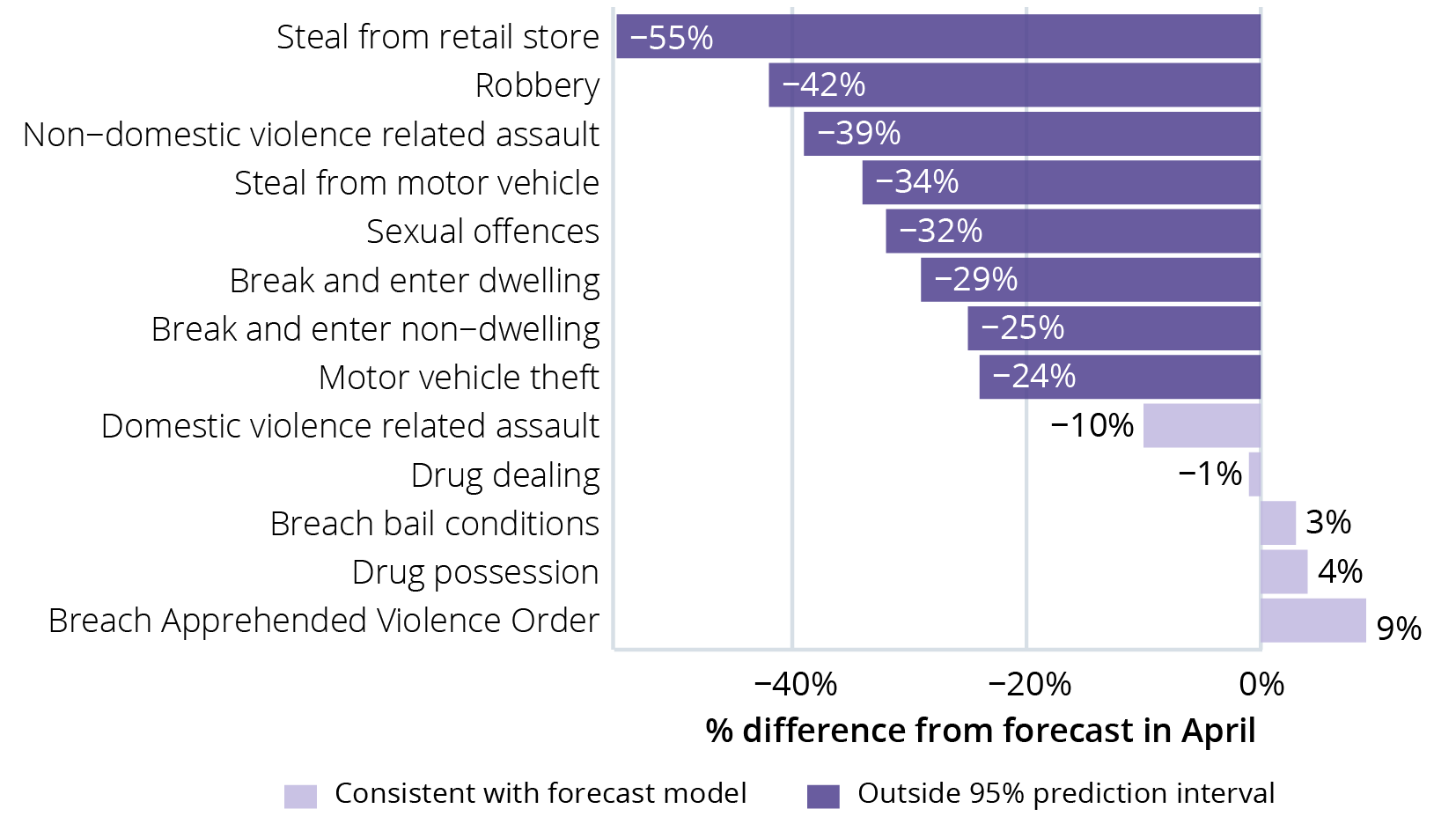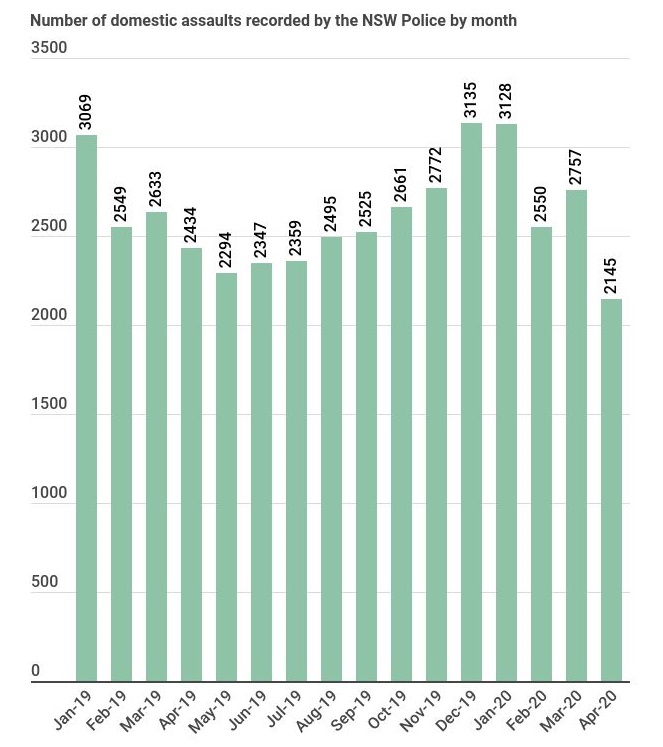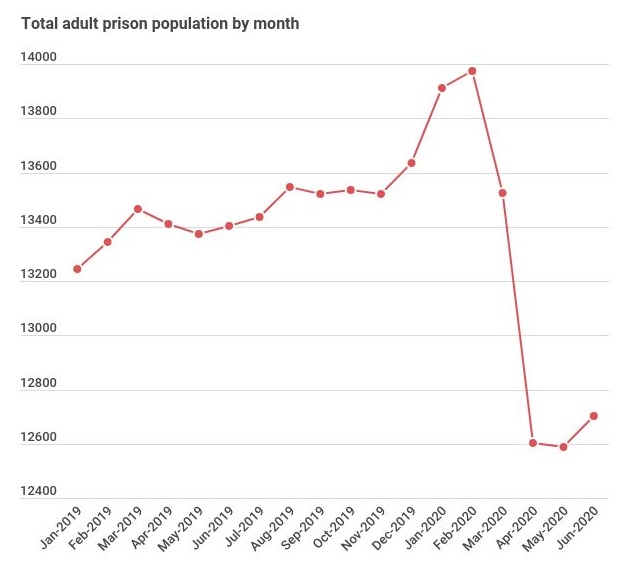Automatic language translation
Our website uses an automatic service to translate our content into different languages. These translations should be used as a guide only. See our Accessibility page for further information.
In response to the global COVID-19 pandemic, the Australian and NSW Governments implemented various measures to minimise personal contact and contain the spread of the virus. Social distancing and social isolation initiatives were rolled out throughout March 2020. The most stringent restrictions were in place throughout April, with some restrictions relating to isolation beginning to ease from mid-May 2020.
The COVID-19 response also involved changes to the Criminal Justice System to minimise the risk of transmission. These measures resulted in a significant disruption to regular activities and were associated with large falls in various violent and property crimes in NSW. Offences sensitive to police enforcement activity, such as drug offences and breaches of AVOs and bail conditions, however remained mostly stable.
Commencing March 2020, the NSW Government issued public health orders under section 7 of the NSW Public Health Act 2010 to limit the spread of COVID-19. These orders have undergone several revisions and amendments since March 2020. The orders have included restrictions on travel, limits on social gatherings, social isolation requirements, the mandatory wearing of face coverings, and prohibiting intentional spitting and coughing on public officials and workers. Police can issue a fine or court attendance notice for failure to comply with the orders.
Difference between forecast and observed incidents:
Read the full report: COVID-19 pandemic and crime trends in NSW


Read the full report: Domestic violence in NSW in the wake of COVID-19
Read the full report: The impact of COVID-19 measures on the NSW adult prison population

Last updated: